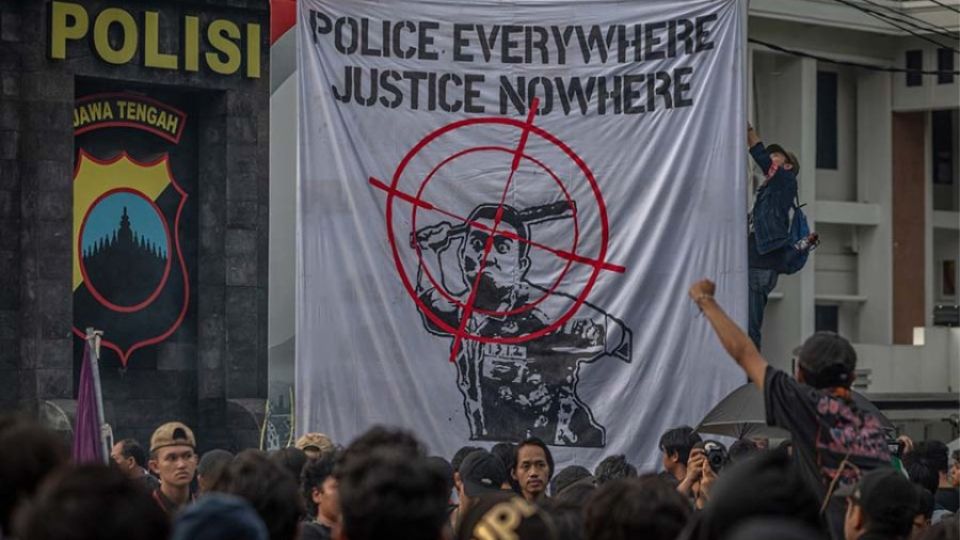December 5, 2024
JAKARTA – The recent case of a police officer fatally shooting a fellow cop in West Sumatra should leave no doubt that it’s time for the country to get tough on the armed organization.
South Solok Police head of operations Adj. Comr. Dadang Iskandar allegedly shot fellow officer Adj. Comr. Ryanto Ulil Anshari from close range in the headquarters’ parking lot on Nov. 22.
The murder was allegedly triggered by an investigation led by Ryanto into an illegal mining operation in the regency. Dadang was reportedly selling protection to the illegal miners. He was found to be carrying a large quantity of bullets, enough for investigators to conclude that Dadang had planned to kill Ryanto.
The case has received national attention, with civil organizations and lawmakers pushing the police to conduct a thorough investigation of the shooting and the alleged illegal mining operation that appears connected to it. Indonesia has many unlicensed mines, especially in remote areas.
The police have dishonorably discharged Dadang following an ethics hearing last week and have promised that their criminal investigation into the fatal shooting will continue. But to show a deeper commitment to justice, the institution should also continue the investigation into the alleged illegal mining operation.
It’s common knowledge that the police remain involved in illegal businesses despite an internal reform effort, launched in the wake of the fall of Soeharto’s New Order regime in 1998, to transform the police into a more accountable and credible institution.
Anyone who doubts this needs only to consider the events of 2022, when two-star police general Teddy Minahasa was found to be trafficking illicit drugs seized by the West Sumatra Police, which he led at the time. A year later, he was sentenced to life in prison for his crime.
In another incident in 2022, the Financial Transaction Reports and Analysis Center (PPATK) found suspicious transactions worth trillions of rupiah it believed to be related to online gambling, including in police officers’ bank accounts. The case remains unresolved to date.
The West Sumatra murder case marks the second high-profile police killing of a fellow officer in two years.
In 2022, then-National Police internal affairs chief Ferdy Sambo shot his own aide-de-camp, Nofriansyah Yosua Hutabarat, a police brigadier, in the head and covered up the murder. Sambo, a two-star general, was sentenced to life in prison for premeditated murder.
His case is regarded as the biggest scandal involving the police in recent memory and caused public trust in the institution to plummet.
Just recently, a police officer in Central Java was arrested on allegations of shooting and killing a 17-year-old high school student while supposedly dispersing a brawl. There have also been numerous incidents involving the police’s use of unwarranted violence against civilians during rallies or even at large sporting or entertainment events.
These brutalities have hardened disturbing doubts about the accountability of the police and their ability to resolve their own problems, including their excessive use of lethal force.
According to data from rights group Amnesty International Indonesia, the police and Indonesian Military (TNI) have committed at least 31 extrajudicial killings so far this year, eight of which occurred within the past month.
The culture of violence within the police has been left unaddressed since the advent of the Reform movement in 1998; such a prolonged problem points to systemic and structural factors.
A quarter of a century ago, the police were divorced from the armed forces. But that separation has today transformed the police into a powerful institution that stubbornly maintains a culture of violence.
The string of cases that we have seen recently serves as a grim reminder that no serious measures have been taken to bring about change in the force.
There must be reforms in how the institution investigates cases involving its own officers and how it ensures accountability in the use of lethal force.


